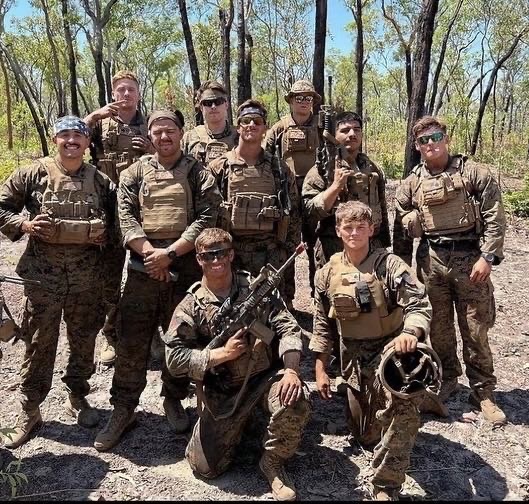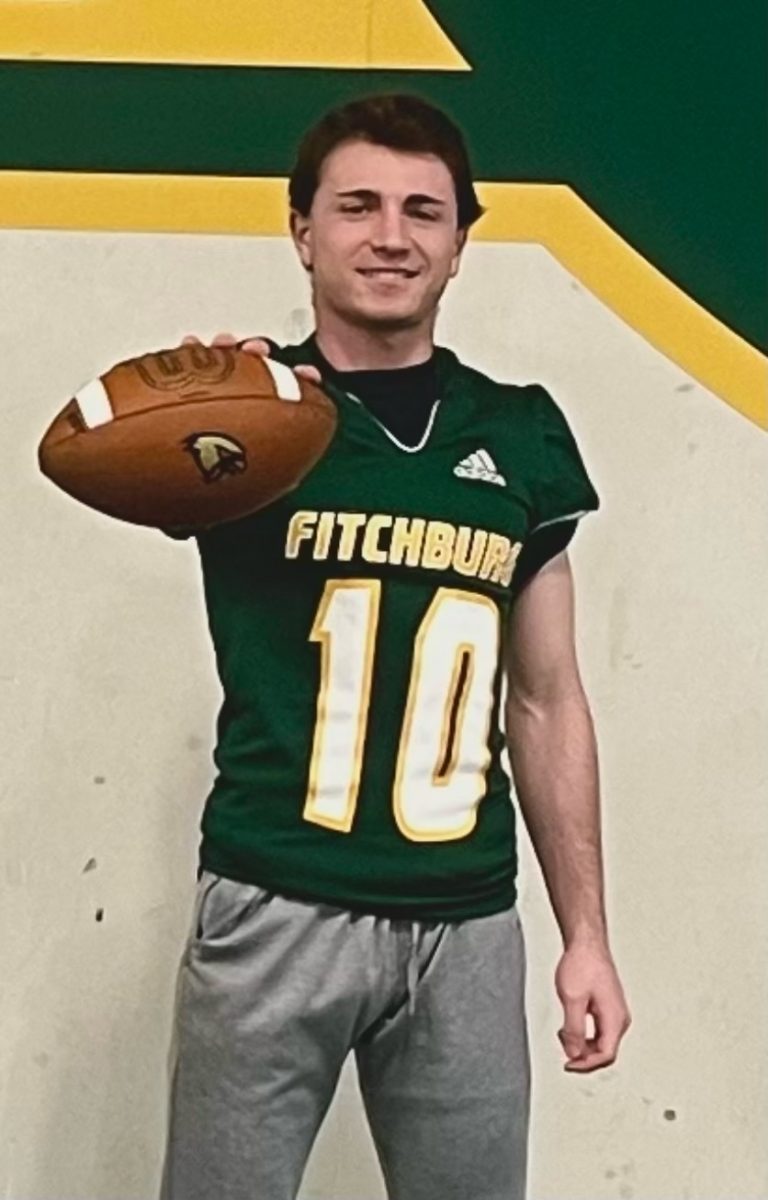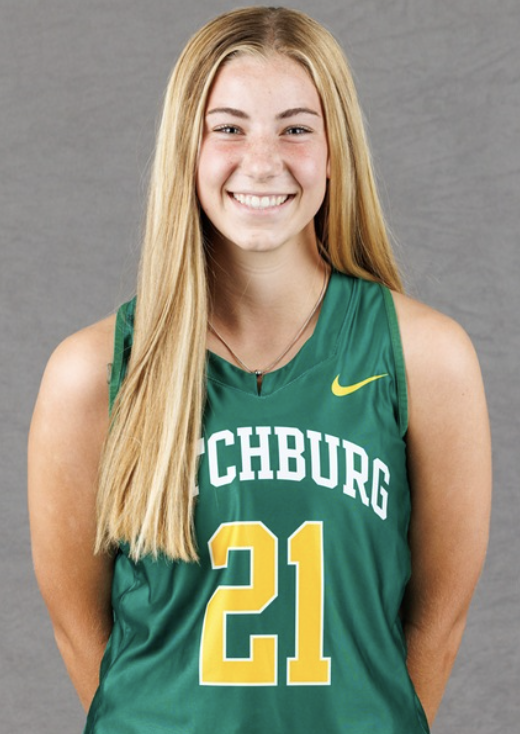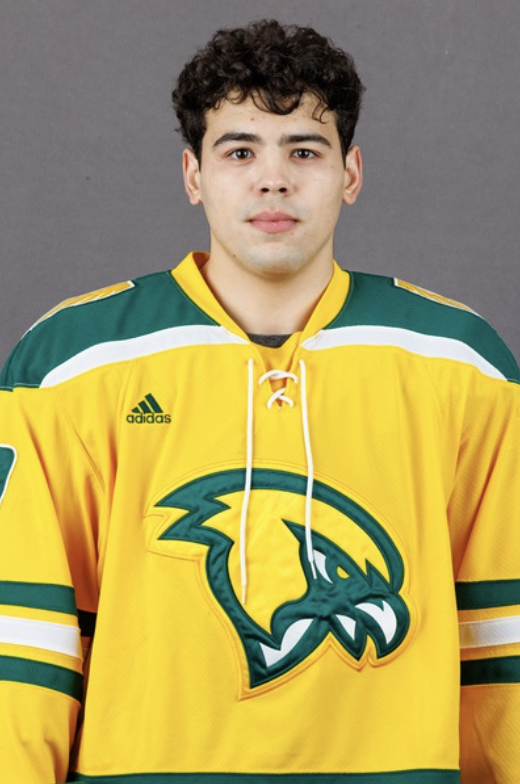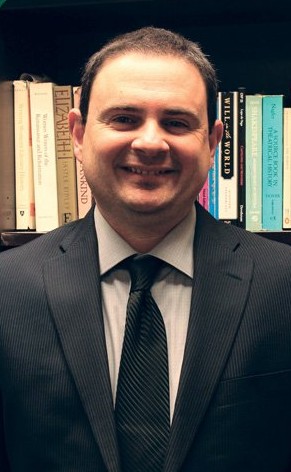
By Kurtis Kendall
Fitchburg State English Professor Benjamin Railton has always been interested in stories. Not simply fiction novels or magazine articles, but the stories of our lives and experiences; the ones we all have and share as people.
Growing up in Charlottesville, Virginia, Railton has had a direct connection to history from the outset. Around the time Railton was born, there were still remnants of discrimination in his hometown, with segregated pools right next to his house separating black from white. Coming from the south side of town, which was predominantly black, he had a unique perspective on people by the time the school systems merged in middle school.
“My childhood gave meaning to what I wanted to do,” said Railton, “I was interested in the connections we all share from a young age.” This investment in the stories of people led him down the path toward becoming an English Studies professor. His parents also strongly influenced his direction, with Railton’s father being a college professor himself, and his mother working with younger children in disadvantaged communities. The drive to bring equal opportunity to kids through education and in general was strong in the Railton household from the beginning.
It’s been 14 years now that Professor Railton has been at Fitchburg State, with his initial hiring coming partly based on being in the right place at the right time. But what has kept him here is the sense of community at Fitchburg State. “Fitchburg felt a lot like Temple University in Philadelphia where I used to work. It was the only public college in the region, very student focused, and a close knit community,” said Railton. “It [Fitchburg State] is exactly the kind of place I’ve come to love.”
This sense of community and story focused drive follows Railton into the classroom with this teaching style. “The main thing, which is easier to say than do, is finding balance between a student driven environment, along with my voice and the material.”
Railton cites his weekly emails, where students give their opinions on the week’s material, as a way of drawing out students. “It’s more of a craft [getting students to share their point], but the weekly emails are one way to consistently get as many voices in the mix. It’s never 100 percent,” continues Railton, “but I try my best to have each student get something meaningful out of the class toward their development. Every class is different, but it’s really about what those 28 or so students take out of it.”
“Ben Railton knows how to make every student heard,” said Fitchburg State senior Kiya Bodendorf, who has had multiple classes with Railton. “He uses time in class to give all student’s perspectives a platform, and in his classes there’s no such thing as a stupid question or a stupid answer to a question. He lets students interpret things in their own way, and encourages them to do so.”
Fitchburg State senior Katelyn Chase appreciates the assistance Railton offers to students. “Definitely one of the most approachable professors on campus. He genuinely helps anyone who wants it and truly helps any student with their careers.”
Responding to what students say about him, Railton again references the stories each of us have. “I do care, genuinely. I care for students and respect all their different situations. You don’t get the same things from everyone because of their different scenarios, and that’s important.”
Railton also mentions how he often goes by his first name in his classes. “For me, asking my students to refer to me as Ben is about community. We are all in it equally. The informal tone and conversation that can come from this helps to really get a meaningful message from material.” Railton states how it can be easier to get students to share and open up in this setting, as otherwise it can be very hard to do the work that needs to be done.
Railton is an author and online writer as well, his four books (fifth in progress) all share this idea of collective American stories. “Our shared past, identities, narratives and perspectives. The connections and challenges we have together,” said Railton on the through line of his works.
Stating how the greatest amount of his work has been online writing, Railton can’t help but stress it’s importance to all. “Online writing is even more amplified in terms of connection to others,” says Railton. “The most positive and meaningful writing to me has been online. I can’t emphasize enough for students to put their voice out there on internet to connect with others.”
The stories of our future are just as important as our past to Railton. “To see lives develop and continue to develop, how we can collectively be apart of an improved future, that’s important to me.” Railton also says how English Studies is a discipline needed in modern life. “The world around us needs our analysis; in the news, in debates and conversations. How we engage with the world is really valuable for 21st century people.”
The biggest thing for Railton though is not only the sharedness of experiences with others, but how that interaction can mold the world. “They remind me that things are still open, that things can still be shaped,” said Railton, referring to both his two sons as well as students. “Through conversations with others, helping to shape the future through them means a lot to me. If I felt that I didn’t have that future value with my work, I probably wouldn’t be doing what I’m doing.”
Categories:
Benjamin Railton: The Stories We Share
March 23, 2019
0



